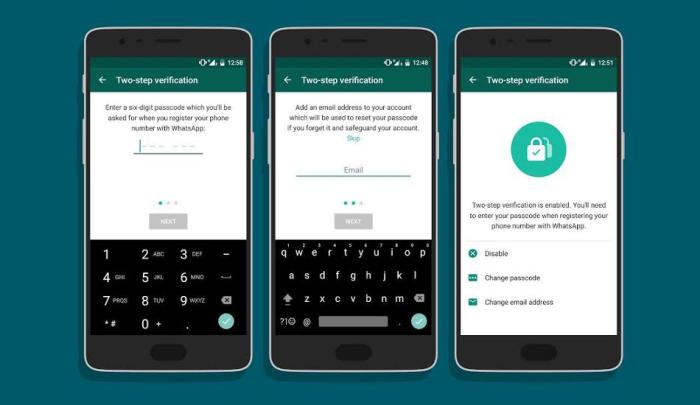WhatsApp has become an indispensable part of our lives, connecting us with friends, family, and colleagues worldwide. However, with its popularity comes the responsibility to ensure our privacy and security. This comprehensive guide will provide you with actionable tips and best practices to safeguard your WhatsApp account and protect your personal information.
By implementing these measures, you can significantly reduce the risk of unauthorized access, data breaches, and other security threats. Let’s dive into the essential steps to enhance your WhatsApp security.
Introduction
WhatsApp is one of the most popular messaging applications globally, with over 2 billion active users. Its widespread usage has made it a target for cybercriminals, making it crucial for users to implement robust security measures to protect their accounts and personal information.
Importance of Security
WhatsApp offers end-to-end encryption, ensuring that messages and calls are secure from eavesdropping. However, this encryption is only effective if users take additional steps to safeguard their accounts. By implementing best practices, users can minimize the risk of unauthorized access, data breaches, and other security threats.
Enabling Two-Factor Authentication (2FA)
To enhance the security of your WhatsApp account, activating Two-Factor Authentication (2FA) is highly recommended. This additional layer of protection safeguards your account against unauthorized access, even if your password is compromised.
Steps to Enable 2FA
- Open WhatsApp on your mobile device.
- Tap on the three vertical dots located in the top-right corner of the screen.
- Select “Settings” from the drop-down menu.
- Tap on “Account” and then “Two-Step Verification”.
- Tap on “Enable” and enter a six-digit passcode.
- Confirm your passcode by entering it again.
- Enter your email address as a backup option for password recovery (optional but recommended).
- Tap on “Save” to complete the process.
Once 2FA is enabled, you will be prompted to enter your six-digit passcode in addition to your password when logging into WhatsApp on a new device or when reinstalling the app.
Managing Privacy Settings
WhatsApp offers several privacy settings that allow you to control the visibility of your personal information. Adjusting these settings is crucial to protect your privacy and prevent unauthorized access to your data.
Profile Picture
- Choose who can see your profile picture: Everyone, your contacts, or only yourself.
- Hiding your profile picture from certain contacts or the public can prevent them from identifying you.
Last Seen Status
- Control who can see the last time you were online: Everyone, your contacts, or nobody.
- Hiding your last seen status can prevent others from tracking your online activity.
Read Receipts
- Enable or disable read receipts to indicate when you have read messages.
- Disabling read receipts can prevent others from knowing when you have seen their messages.
Customizing your privacy settings allows you to tailor WhatsApp to your specific needs and preferences, ensuring that your personal information remains secure and protected.
Using Disappearing Messages
Disappearing messages offer an added layer of privacy by automatically deleting sent messages after a predetermined period. This feature can be beneficial in situations where you want to minimize the risk of sensitive information being stored indefinitely.
To enable disappearing messages for individual chats:
- Open the chat and tap the contact’s name.
- Tap “Disappearing Messages” and select the desired duration (24 hours, 7 days, or 90 days).
For group chats:
- Open the group chat and tap the group’s subject.
- Tap “Group Settings” and then “Disappearing Messages.”
- Select the desired duration.
When disappearing messages are enabled, sent messages will automatically vanish from both your device and the recipient’s device after the specified time period. This can provide peace of mind and reduce the risk of data breaches or unauthorized access to sensitive information.
Limiting Contact Visibility
Limiting contact visibility on WhatsApp enhances privacy by preventing unauthorized individuals from accessing personal information, such as profile pictures, status updates, and last seen timestamps. This is particularly crucial to safeguard against data breaches, identity theft, and other malicious activities.
Restricting Contact Visibility
To restrict contact visibility, users can modify their privacy settings. They can choose to share contact information only with specific contacts or groups. Additionally, users can opt to hide their profile picture, last seen status, and other details from unknown contacts.
Risks of Sharing Personal Information
Sharing personal information with unknown contacts poses significant risks. Cybercriminals may exploit this information for phishing scams, identity theft, or even physical harassment. Therefore, it is essential to exercise caution when interacting with unfamiliar individuals on WhatsApp.
Verifying Contacts

Verifying contacts on WhatsApp is crucial for ensuring that you are communicating with genuine individuals and not imposters. The verification process helps you confirm the authenticity of a contact’s identity by comparing their WhatsApp profile picture and name with the information you have for them.To
verify a contact, open their WhatsApp chat window and tap on their profile picture at the top of the screen. Under their name, you will see a green checkmark if the contact has been verified. If you do not see the green checkmark, you can initiate the verification process by tapping on the “Verify” button.Interacting
with unverified contacts can pose potential risks. They may be imposters trying to obtain personal information or spread malware. By verifying contacts, you can mitigate these risks and ensure that you are communicating with legitimate individuals.
Reporting and Blocking Suspicious Activity

WhatsApp is a popular messaging app, but it’s important to be aware of the potential security risks associated with using it. One of the best ways to protect yourself is to report and block suspicious activity.
If you see anything suspicious on WhatsApp, such as a message from an unknown number or a link to a malicious website, it’s important to report it to WhatsApp immediately. You can do this by tapping on the “Report” button in the chat window.
You can also block suspicious contacts on WhatsApp. To do this, tap on the contact’s name in the chat window, then tap on the “Block” button.
By reporting and blocking suspicious activity, you can help keep WhatsApp safe for everyone.
Using a VPN for Additional Security
Incorporating a Virtual Private Network (VPN) with WhatsApp adds an extra layer of security to your communication. It encrypts your internet traffic, making it difficult for third parties to intercept and access your messages and data.
There are various types of VPNs available, each with its own set of features and protocols. It’s essential to select a reputable VPN provider that aligns with your security needs and privacy preferences.
Choosing the Right VPN
- Consider the VPN’s encryption standards and protocols (e.g., OpenVPN, IKEv2).
- Check the provider’s no-logging policy to ensure your online activities remain private.
- Select a VPN with a wide server network to access servers in different geographical locations.
- Look for additional security features like split tunneling and kill switches.
Setting Up a VPN with WhatsApp
- Subscribe to a reputable VPN service.
- Download and install the VPN app on your device.
- Configure the VPN settings according to the provider’s instructions.
- Connect to a secure VPN server.
- Open WhatsApp and start using it as usual.
Final Conclusion
Remember, WhatsApp security is a shared responsibility. By following these best practices and staying vigilant, you can create a safer and more secure WhatsApp environment for yourself and others. Stay informed about the latest security updates and continue to practice caution when using the platform.
Your privacy and security are paramount, and these measures will empower you to protect them effectively.
Q&A
What is two-factor authentication (2FA), and why is it important?
Two-factor authentication (2FA) adds an extra layer of security to your WhatsApp account by requiring a second form of verification when you log in. This prevents unauthorized access even if your password is compromised.
How can I verify my WhatsApp contacts?
To verify a WhatsApp contact, open their chat window and tap on their name at the top. If their contact information is verified, you will see a green checkmark next to their name.
What are disappearing messages, and how can I use them?
Disappearing messages are a great way to add an extra layer of privacy to your WhatsApp conversations. When you enable disappearing messages, messages will automatically delete after a set period, ranging from 24 hours to 90 days.
Why is it important to limit contact visibility?
Limiting contact visibility prevents unauthorized access to your personal information. By restricting visibility to specific contacts or groups, you can control who can see your profile picture, last seen status, and other details.



